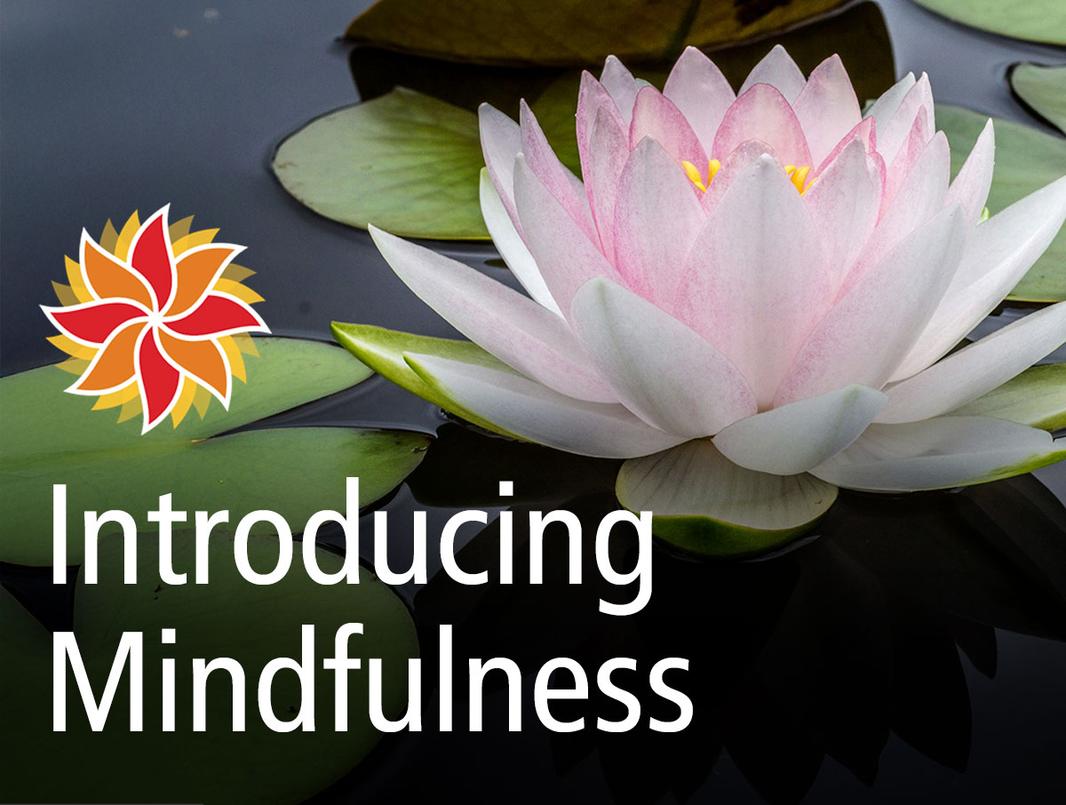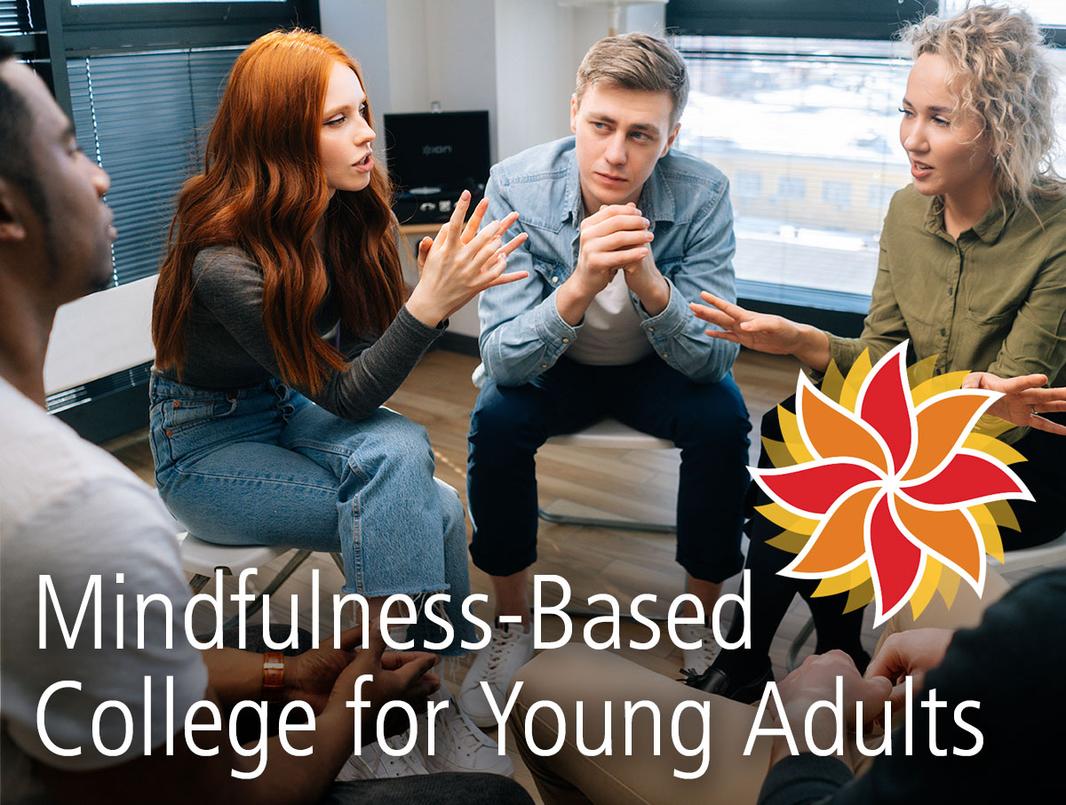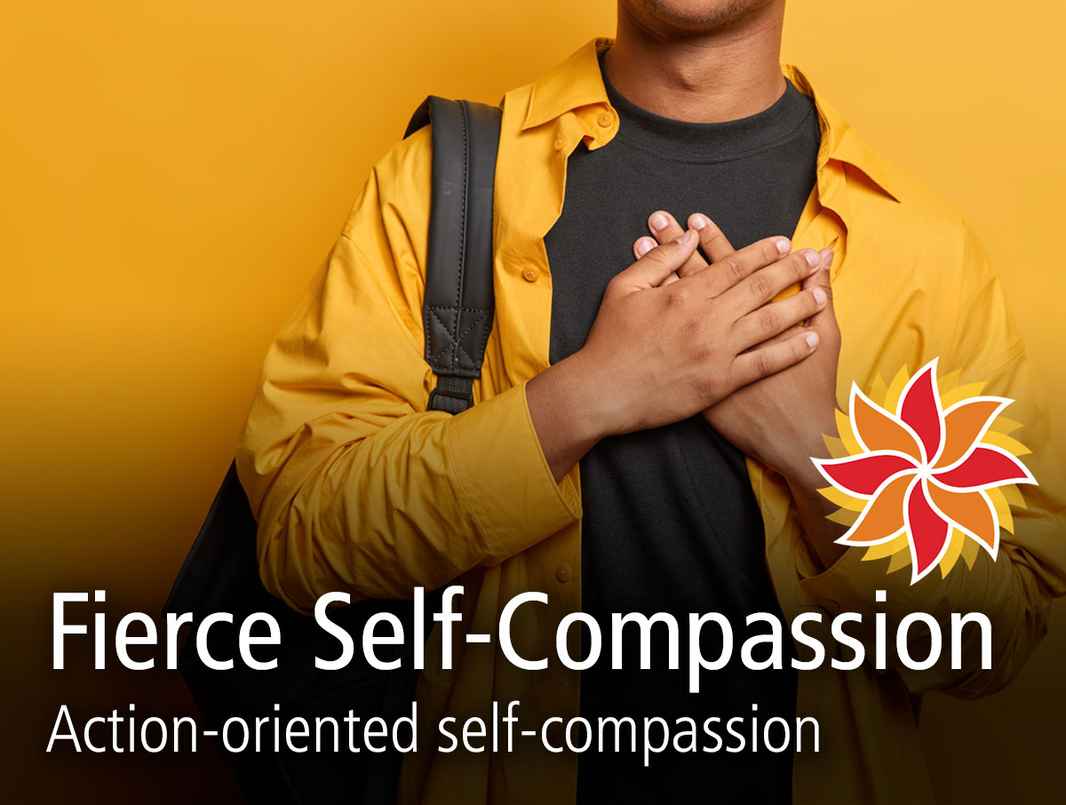Learning Mindfulness
Are you looking for the mindfulness practices and skills to bring about positive change? These can be learned in a mindfulness course, backed by rigorous and ongoing research since 1979.
What Can I Learn in a Mindfulness Course?
Mindfulness courses at MHI promote intentional living, building resilience and compassion through present moment awareness. Expert instructors, chosen for their ability to create a supportive environment, guide students in personalized mindfulness practices and offer ongoing support throughout the course.
What is Included in Our Mindfulness Courses?
- Interactive learning with customizable meditations
- Evidence-based curriculum informed by decades of research
- Practice tools and resources with practical application
- Trauma-sensitive, trauma-informed instructors
- Community support
How Much Mindfulness Experience Do I Need to Take a Course?
Our mindfulness courses are inclusive and accessible to all, regardless of experience level. No prior training is required, and “pay what you can” options are available.
Introducing Mindfulness
Introducing Mindfulness is a 3-week, evidence-informed course designed to be an accessible and affordable way to explore three core mindfulness themes, providing practical support for daily life without the commitment of a longer course.
March 3 to 17, 2026
April 9 to 23, 2026
May 6 to 20, 2026
Don't see dates/times that work for you?
Join the Introducing Mindfulness waitlist to be notified when a new course is available.
Mindfulness for Young Adults
For young adults aged 18-29, Mindfulness-Based College for Young Adults offers skills and support tailored to this unique stage of life. Developed by Dr. Eric Loucks, professor and Director of the Mindfulness Center at Brown University, the course explores topics especially relevant to this age group, including stress, sleep, social connection, diet, exercise, alcohol use, and performance.
Despite the name, students do not need to be enrolled in college. Whether you're entering the workforce, starting a family, learning a trade, or pursuing higher education, this course is designed to meet you where you are.
February 24 to April 14, 2026
Don't see dates/times that work for you?
Join the Mindfulness for Young Adults (18-29) waitlist to be notified when a new course is available.
Mindfulness for Life
Mindfulness for Life provides tools and practices to help students recognize and understand their thinking and behavior patterns. It teaches how to apply these tools in daily life to manage challenges, develop essential skills, and ultimately foster lasting change and lead a more fulfilling life.
Don't see dates/times that work for you?
Join the Mindfulness for Life waitlist to be notified when a new course is available.
Mindful Eating
Mindful Eating explores how mindfulness-based practices can be applied to nourishing one’s body with food and drink. Students learn how to bring awareness to the thoughts, emotions and physical sensations of eating.
January 19 to March 9, 2027
Don't see dates/times that work for you?
Join the Mindful Eating waitlist to be notified when a course is available.
Mindfulness-Based Stress Reduction (MBSR)
Mindfulness-Based Stress Reduction (MBSR), the longest and most researched mindfulness-based course, provides training and tools that help to empower individuals to navigate stress, anxiety, pain, impatience and intolerance, and other mental-emotional-physical experiences.
April 1 to May 27, 2026
Don't see dates/times that work for you?
Join the MBSR waitlist to be notified when a course is available.
A Mindful Approach to Depression and Anxiety (Mindfulness-Based Cognitive Therapy, MBCT)
For those navigating the complexities of depression and anxiety, A Mindful Approach to Depression and Anxiety (MBCT) combines cognitive therapy techniques with mindfulness practices to equip individuals with tools to interrupt negative thought patterns and manage difficult emotions, offering a path toward greater mental resilience.
February 17 to April 7, 2026
Don't see dates/times that work for you?
Join the MBCT waitlist to be notified when a course is available.
Science and Practice of Habit Change
The latest research shows that lasting and positive habit change becomes more achievable by combining proven cutting-edge neuroscience techniques and mindfulness-based tools. Utilizing these tools, the Science and Practice of Habit Change helps individuals recognize habitual patterns and uses the brain’s natural reward center to establish healthier patterns of behavior.
Don't see dates/times that work for you? Join the Science and Practice of Habit Change waitlist to be notified when a course is available.
Mindful Self-Compassion
Within the Mindful Self-Compassion course, self-compassion is explored as an integral facet of mindfulness, encouraging individuals to treat themselves with kindness. Through self-compassion practices, individuals learn to befriend the inner critic and respond with self-care and empathy.
Don't see dates/times that work for you?
Join the Mindful Self-Compassion waitlist to be notified when a course is available.
Fierce Self-Compassion
Fierce Self-Compassion focuses on developing the assertive and action-oriented side of compassion. This course guides students beyond nurturing self-kindness to cultivate the courage needed to protect, provide for, and motivate yourself toward positive change. By emphasizing the fierce aspect, the course deepens your understanding of self-compassion, empowering you to set boundaries, address harmful behaviors, and reclaim your inner strength.
Don't see dates/times that work for you?
Join the Fierce Self-Compassion waitlist to be notified when a course is available.
Who are these Learning Mindfulness Courses for?
All of these courses are designed for adults 18 and older who are interested in exploring a variety of mindfulness-based techniques. The extensive research on mindfulness over the past 40+ years demonstrates its efficacy across a wide range of populations and high adaptability to individual needs and preferences (Roach et al., 2019; Smit & Stavrulaki, 2021; Strauss et al., 2021; Goldberg et al., 2020).
Especially for psychologists and clinicians, there are three (3) courses approved by APA for continuing education credits: MBSR, MBCT, and the Science and Practice of Habit Change. These courses provide a wide range of mindfulness-based tools when working with diverse populations. However, effectively integrating mindfulness into the therapeutic space requires a personal mindfulness practice. Studies suggest that mindfulness training significantly strengthens the therapeutic alliance, the cornerstone of effective therapy, by enhancing therapeutic presence in several key ways:
- Cultivating present-moment awareness: Mindfulness fosters clinicians' ability to be fully engaged in sessions, leading to a deeper connection with clients and facilitating empathy. (Hunt et al., 2022)
- Improving self-awareness: Through introspection, therapists develop a better understanding of their own thoughts and emotions, enabling more sensitive and responsive interactions. (Bourgault & Dionne, 2019)
- Enhancing emotional regulation: Mindfulness skills equip therapists to manage their own emotions effectively, creating a calmer and more accepting therapeutic environment. (Sooreshjani et al, 2023)
- Boosting empathy and compassion: Deeper self-awareness cultivates a stronger capacity for understanding and relating to clients' experiences, thereby building a more compassionate therapeutic relationship. (Bourgault & Dionne, 2019; Sooreshjani et al, 2023; Latorre et al., 2023)
- Deepening active listening skills: Mindfulness training strengthens focused attention and presence, allowing therapists to listen intently and remain attuned to subtle client cues. (Jones et al., 2019)
Overall, mindfulness training equips clinicians with the foundational and advanced skills and qualities necessary to foster a safe and trusting therapeutic space where clients feel heard, understood, and supported. This strengthens the therapeutic alliance, ultimately enhancing the effectiveness of treatment for a wider range of individuals.
Research Sources
- Bourgault, M., & Dionne, F. (2019) Therapeutic Presence and Mindfulness: Mediating Role of Self-Compassion and Psychological Distress among Psychologists. Mindfulness 10, 650–656. https://doi.org/10.1007/s12671-018-1015-z
- Goldberg, S. B., Riordan, K. M., Sun, S., Kearney, D. J., & Simpson, T. L. (2022). Efficacy and acceptability of mindfulness-based interventions for military veterans: A systematic review and meta-analysis. Journal of Psychosomatic Research, 138. https://doi.org/10.1016/j.jpsychores.2020.110232.
- Hunt, C. A., Goodman, R. D., Hilert, A. J., Hurley, W., & Hill, C. E. (2022) A mindfulness-based compassion workshop and pre-session preparation to enhance therapist effectiveness in psychotherapy: A pilot study. Counselling Psychology Quarterly, 35(3), 546-561.https://doi.org/10.1080/09515070.2021.1895724
- Jones, S. M., Bodie, G. D., & Hughes, S. D. (2019). The Impact of Mindfulness on Empathy, Active Listening, and Perceived Provisions of Emotional Support. Communication Research, 46(6), 838-865.https://doi.org/10.1177/0093650215626983
- Latorre, C., Leppma, M., Platt, L. F., Shook, N., & Daniels, J. (2023). The relationship between mindfulness and self-compassion for self-assessed competency and self-efficacy of psychologists-in-training. Training and Education in Professional Psychology, 17(2), 213–220.https://doi.org/10.1037/tep0000395
- Roach, A. T., Mhende, J., Barger, B. A., & Roberts, D. A. (2019) Implementing Mindfulness Practices With Parents of Young Children in a Low-Socioeconomic Status Neighborhood. Journal of the Georgia Public Health Association, 7(2).https://doi.org/10.20429/jgpha.2019.070206
- Smit, B., & Stavrulaki, E. (2021) The Efficacy of a Mindfulness-Based Intervention for College Students Under Extremely Stressful Conditions. Mindfulness 12, 3086–3100.https://doi.org/10.1007/s12671-021-01772-9
- Sooreshjani, M. A., Nikgoo, R., & Hojjatollah Farahani (2023) The indirect effect of compassion for others in the relationship between mindfulness and therapeutic presence. Clinical Psychologist, 27(3), 343-351.https://doi.org/10.1080/13284207.2023.2225697
- Strauss, C., Gu, J., Montero-Marin, J., Whittington, A., Chapman, C., & Kuyken, W. (2021). Reducing stress and promoting well-being in healthcare workers using mindfulness-based cognitive therapy for life. International Journal of Clinical and Health Psychology, 21(2).https://doi.org/10.1016/j.ijchp.2021.100227
Continuing Education Credits
Help and Events
- Help and Contact Information
- How To and FAQs
- Policies and Procedures
- Advising Sessions
- Information Sessions
- Mindfulness In This Moment
- Free Community Sessions










